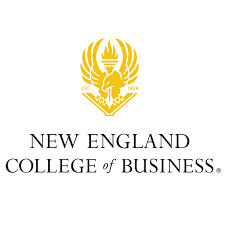Corporate and financial fraud is on the rise. The only hero fit for the job? Forensic accountants. Earn an online Master’s in Forensic Accounting and tackle fraud right and left.

Before the early 2000s, forensic accounting didn’t really exist. But with efforts like the Sarbanes-Oxley Act of 2002, the field took off. The Sarbanes-Oxley Act essentially holds CEOs of companies personally responsible for all financial accuracies. It comes down hard on financial fraud and makes it easier to sniff out not-so-legal business dealings.
Forensic accountants are the men and women who keep those businesses accountable. Not all crime looks the same. Not all crime-stoppers look the same, either. If you earn an online Master’s in Forensic Accounting, you’ll be a superhero with a calculator.
What is an Online Master’s in Forensic Accounting?
Forensic accountants are the unsung heroes of the criminal justice system. They aren’t flashing badges or chasing down criminals on foot. Very much the contrary, in fact. They are poring over spreadsheets and piecing together money trails. They are uncovering wire fraud and spotting illegal financial loopholes.
Forensic accounting brings together a mix of a few different careers: criminal justice, accounting, business, ethics, and more. Wondering if this field is right for you? Basically, you need to possess both a meticulous eye for detail and a big-picture perspective.
The curriculum in the Master’s in Financial Accounting degree will be highly specialized. These programs assume you already have a handle on foundational accounting practices. Now you’re ready for the good stuff.
How much can you earn with an Online Master’s in Forensic Accounting?
By earning an advanced degree in the field of forensic accounting, you’re securing access to a lucrative salary. With specialized knowledge comes higher pay—that’s just a given.
The average forensic accountant can make around $91,000 per year. But that number could be much higher, depending on where and how long you work. For example, right now a forensic accountant working at the FBI makes closer to $99,000 per year.
More good news: the demand for forensic accountants will only increase. As of now, accountants are expected to see a 10 percent increase in job outlook.
Accounting is a growing field in general. Accountant careers are expected to grow at 6%, the national average, and Financial Advisor positions are expected to grow 16%!
What is required for an Online Master’s in Forensic Accounting?
Online learning makes a Master’s in Forensic Accounting accessible and affordable. Most of these programs can be completed in just one year, start to finish. While you’re in the application process, here are a few admissions requirements you may encounter:
- GRE / GMAT scores
- GPA minimum (between 3.0 and 4.0)
- At least 1 year work experience
- Application fees
If you’re worried about a few of these requirements, don’t end your search! They range wildly from school to school. Some don’t require GRE & GMAT scores. Others waive the application fee. Even others are open to students without any accounting experience! Take a look at each school and see what fits with your specific situation.
One thing you can count on with each program is around 30-40 total credits to graduate. Some programs include Forensic Accounting as a concentration, while others feature it as a full degree. Regardless, at each of these ten schools you’re guaranteed a quality education.
What are the Best Online Master’s in Forensic Accounting degrees?
OSR uses six data points: three school-wide and three program specific. For school-wide, OSR uses Student Satisfaction, Admission Rates, and the number of programs the school offers online. For program specific, OSR checks the Median Debt of graduates from that program, how many degrees are offered within that program’s umbrella department, and what percentage of students at that school graduated from that department.
The six statistics are displayed by each school. The sliding bar under each statistic represents how that school compares to other US institutions. “Not reported” means a school did not release that information to the US Department of Education. A more detailed description of the OSR process can be found on the methodology page.










